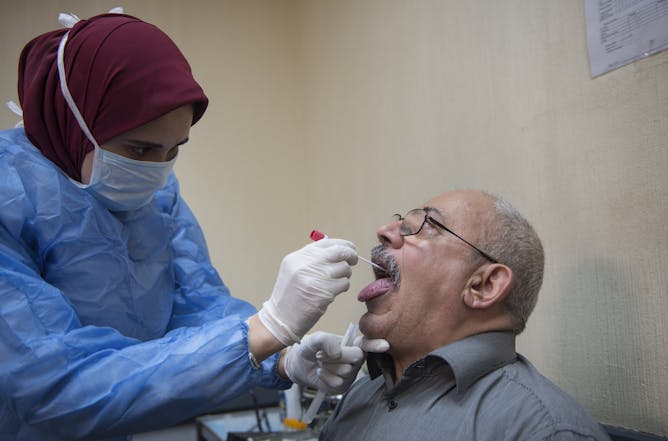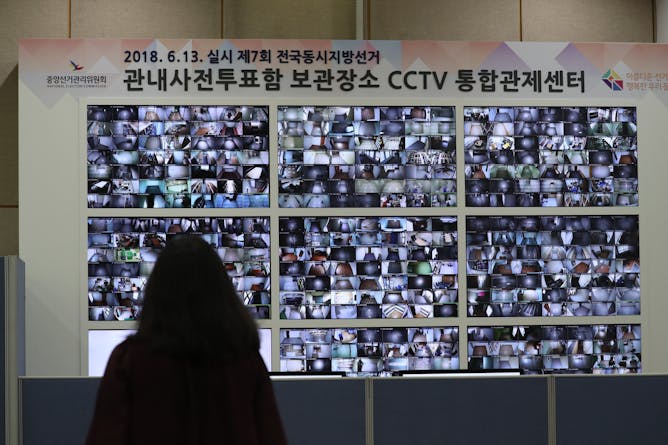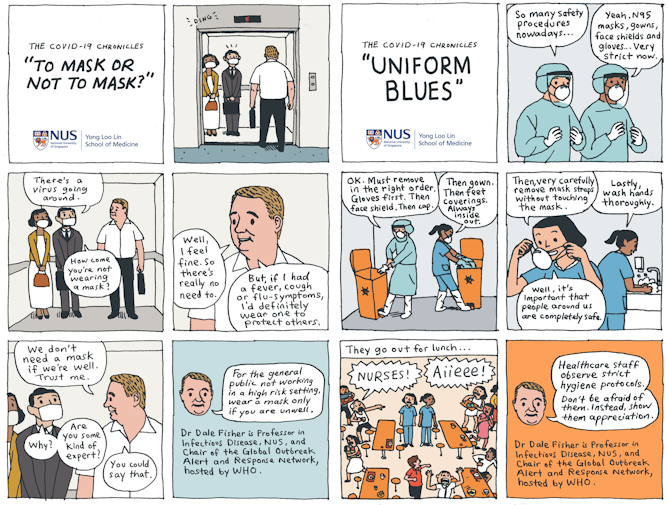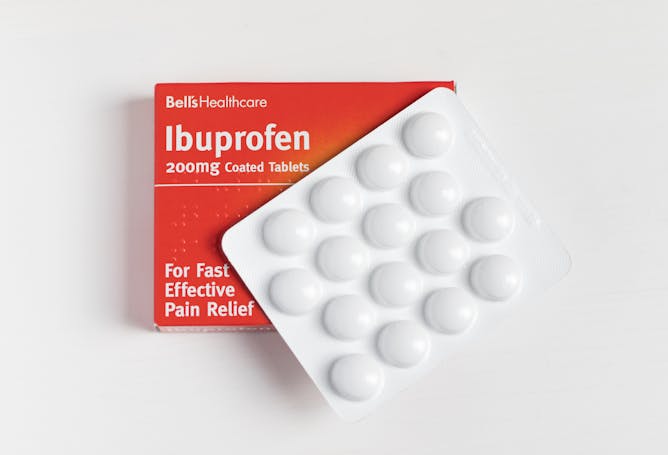|
|
|
Editor's note
|
|
Since first taking action to address the spread of the coronavirus, the UK government has been accused by some of not following “the science”. Yet the government’s chief scientific adviser and chief medical adviser regularly appear next to the prime minister as he announces new measures to tackle the virus. And he maintains that the government’s actions are, indeed, “led by the science”. So what’s going on?
The difficulty is that we’re dealing with a lot of uncertainty. “The science” in this case isn’t a consensus of established facts but rather a system of modelling and predicting what effects different measures will have. However, researchers are also working quickly to try to change that and gather empirical evidence about how successful the measures being taken around the world are at stopping the spread of the virus. There might not be a
single best strategy that works for everyone, but we’re starting to build a picture of what can be effective.
In the case of South Korea, much of its recent fall in the number of new cases has been attributed to an extensive testing programme. But you also need to find and isolate infected people to test, and that’s been done thanks to the country’s extensive use of surveillance technology, something that might make some countries feel uneasy. Singapore has had similar results that have also been based on strong communication with the public.
Speaking of which, you may have seen reports that ibuprofen and high blood pressure “ACE inhibitor” drugs can worsen symptoms of the coronavirus disease (COVID-19), so we’ve been getting to the bottom
of what we really know.
|
Stephen Harris
Commissioning + Science Editor
|

|
|
Top stories
|

MOHAMED HOSSAM/EPA
Claudia Abreu Lopes, United Nations University; Sanae Okamoto, United Nations University
Travel bans, social distancing and testing can all be effective against COVID-19.
|

South Korean is one of the most surveilled countries in the world.
Yonhup/EPA
Jung Won Sonn, UCL
South Korea's COVID-19 testing programme relies on what many would call privacy invasions.
|

Yong Loo Lin School of Medicine, National University of Singapore
Dale Fisher, National University of Singapore
The keys to success in Singapore: being prepared, keeping those infected with coronavirus out of the community and communicating effectively with the public.
|

Ibuprofen is a common anti-inflammatory medicine.
Maddie Red/ Shutterstock
Parastou Donyai, University of Reading
There is currently no evidence showing it makes COVID-19 symptoms worse.
|
Health + Medicine
|
-
Alister McNeish, University of Reading
How Ace inhibitors work to lower blood pressure.
-
Tim Spector, King's College London
Your gut plays an important role in building your immune defences. Don't neglect it.
|
|
Politics + Society
|
-
Gemma Carney, Queen's University Belfast
People of all ages need to work together to help keep society functional.
-
Nicole Westmarland, Durham University; Rosanna Bellini, Newcastle University
For some people, home is not a safe place to be.
-
Alex Prior, University of East Anglia
Should parliament close because it's important or stay open because it's important?
|
|
Business + Economy
|
-
Alan Shipman, The Open University
The British currency is showing the strain of the government's rescue plan.
-
Johann Fortwengel, King's College London
Coronavirus may fundamentally reshape some areas of how we life our lives.
|
|
Arts + Culture
|
-
Chris Porter, Manchester Metropolitan University
A battle between aristocratic amateurs and working class professional led to the game we all know and love.
-
Katherine Shwetz, University of Toronto
Pandemic fiction is more popular than ever -- but what these books and movies offer us isn't as straightforward as you might think.
|
|
Environment + Energy
|
-
Swapnesh Masrani, Heriot-Watt University
If the UK government is serious about facilitating a technology shift, it must provide serious long-term policies to improve cost and range.
-
Simone Abram, Durham University
And why COVID-19 has launched a response that the climate crisis couldn't.
|
|
Science + Technology
|
-
Emma Maynard, University of Portsmouth
With schools closing, it is important that we nurture the mental health of children - even if we are unable to hug them.
|
|
Education
|
-
Lana Whittaker, Liverpool School of Tropical Medicine
Many households struggle when schools are closed.
|
|
| |
Featured events
|

|
Ditchburn Lecture Theatre, JJ Thompson Building, Whiteknights campus, Reading, West Berkshire, RG6 6UR, United Kingdom of Great Britain and Northern Ireland — University of Reading
|

|
Rivers Suite, Criaglockhart Campus, Glenlockhart Road,, Edinburgh, Edinburgh, City of, EH14 1DJ, United Kingdom of Great Britain and Northern Ireland — Edinburgh Napier University
|

|
East Midlands Conference Centre, University of Nottingham Park, , Nottingham, Aberdeenshire, NG7 2RJ, United Kingdom of Great Britain and Northern Ireland — University of Nottingham
|

|
Future Technology Centre, Portland Street, Portsmouth, Hampshire, PO1 3AH, United Kingdom of Great Britain and Northern Ireland — University of Portsmouth
|
|
|
|
| |
| |
| |
| |
| |
|
|
|
|
|
|
|